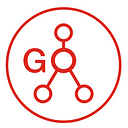When a major crisis occurs anywhere in the world, Red Cross Red Crescent responders know to check GO for the latest situation and key information. While GO has become an indispensable tool for large-scale emergencies, we are committed to making the platform useful for our membership’s routine emergency work.
We share progress made towards this commitment by inviting all our users to a briefing every 3 months to demo new features and share plans. Read on for a summary, the slides and an edited recording from the two sessions.
GO Sprints
In order to increase the speed of delivery, enable rapid iteration and shared ownership, we involve key stakeholders in GO ‘sprints’. We’re exploring this methodology and sharing our notes systematically so that we document and enable others to learn from successes and challenges.
Some of the high-level outputs from recent sprints focussed on the Disaster Response Emergency Fund (DREF) and Preparedness for Effective Response (PER) were shared, with more details on the blogs linked above.
We will continue to capture notes and will summarise our attempt to adapt this innovative approach from the fast-paced world of app and website development to the complex and sometimes procedural IFRC Secretariat.
More information, more easily accessible
In line with IFRC’s early warning role for the IFRC network, we continue to expand the data sources GO is pulling from partners to alert and inform our membership to imminent and ongoing hazards. We have recently included alerting information from WFP’s ADAM system, as well as wildfire hazard forecasts from Pacific Disaster Centre.
We know that users expect a search feature on websites, with GO no exception. While we’ve improved the search results over the years, we’ve just added a results page which provides suggestions of data and pages users are looking for, in what we hope is a logical structure. As this is a new feature, we are keen for your feedback.
GO Advisory Groups — Secretariat and Membership
One of the key recommendations to emerge from the GO Study in 2022, was the need to establish GO within the wider governance of the IFRC. Following consultations on the format, composition, roles and responsibilities, we have formed two new GO Advisory Groups, providing a forum for the Secretariat and Membership to contribute to, learn more about, and influence the direction of the platform.
The GO Secretariat Advisory Group (GO-SAG) is chaired by Caroline Holt, the Director of the IFRC’s Disaster, Climate and Crises Department, and was well attended by senior management from across the organisation. All welcomed the new, more open, approach to governance of the platform. There was consensus on the value of the group, with some early priorities established to establish GO’s role in IFRC’s data governance, ability to bring transparency through decision tracking on the platform.
The GO Membership Advisory Group (GO-MAG) is made up of national Red Cross Red Crescent societies who had been selected to represent their use of GO on previous quarterly briefings. The GO-MAG reiterated the need to focus on the GO Study’s priorities — 1. Focus on National Societies, 2. Be more operational, and 3. to Harmonise, Integrate and Leverage IFRC data. In addition, the participants emphasised the need to produce more and better documentation to enable wider access.
The GO-MAG also agreed on the need to find and engage more GO ‘champions’ from the membership. Indeed, while there was a quorum at the (GO-MAG) established, we are still interested for other national societies to be represented, please get in touch to get involved — im@ifrc.org
Looking ahead
We have a number of exciting new developments on the platform, planned for release within the next quarter.
Firstly, we are working with the FDRS team to develop a single, harmonised Federation-wide 3w tool. The tool is designed to empower National Societies through data ownership, emphasising their requirements for streamlined data submission, report access, and automatic visualisation. The tool aims to integrate a standard Indicator Bank as well as integrate the FDRS quality assurance process into the GO platform to facilitate quality controls on published data. Following a ‘mini’ sprint in April, we have developed wireframes and are looking for feedback. Please click on this link to join the User Testing Group.
Responding to user feedback, we’re about to make some significant changes to the navigation on GO — adding more features to the account page, highlighting national society focussed country pages, revising the grouping of modules and simplifying the language. We demoed these changes on the briefing and will be reaching out to users for their feedback once the changes are on our testing server, in the coming months.
GO has been able to translate into the four official languages since 2020, however it has not been possible to translate user-generated content, such as reports or DREF requests. We’re excited to share that this blocker to access is about to be removed.
Finally, we provided a brief overview of the GO workplan, which provides the overview of enhancements we aim to deliver on the platform in 2023, as well as how those features and functions link to other key IFRC data processes. Please get in touch if you are keen to contribute or collaborate on any of these features.
90% of GO development is funded directly by our National Societies, and we depend on their continued support to deliver on these plans. If you would like to hear more about our work, or offer financial or material support, please contact im@ifrc.org
